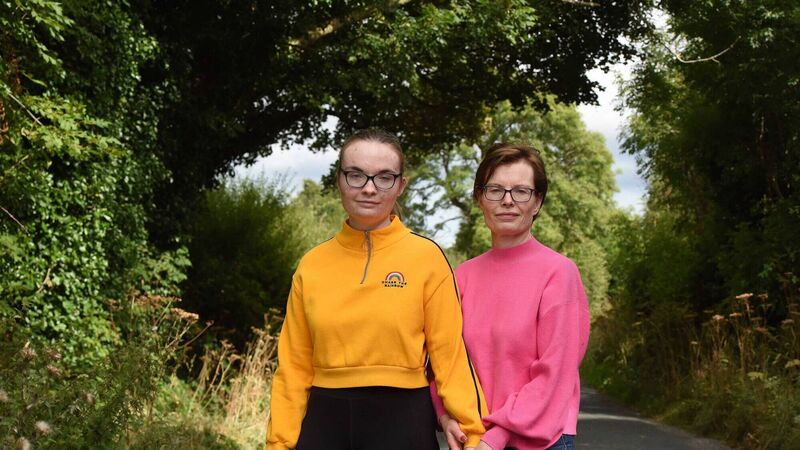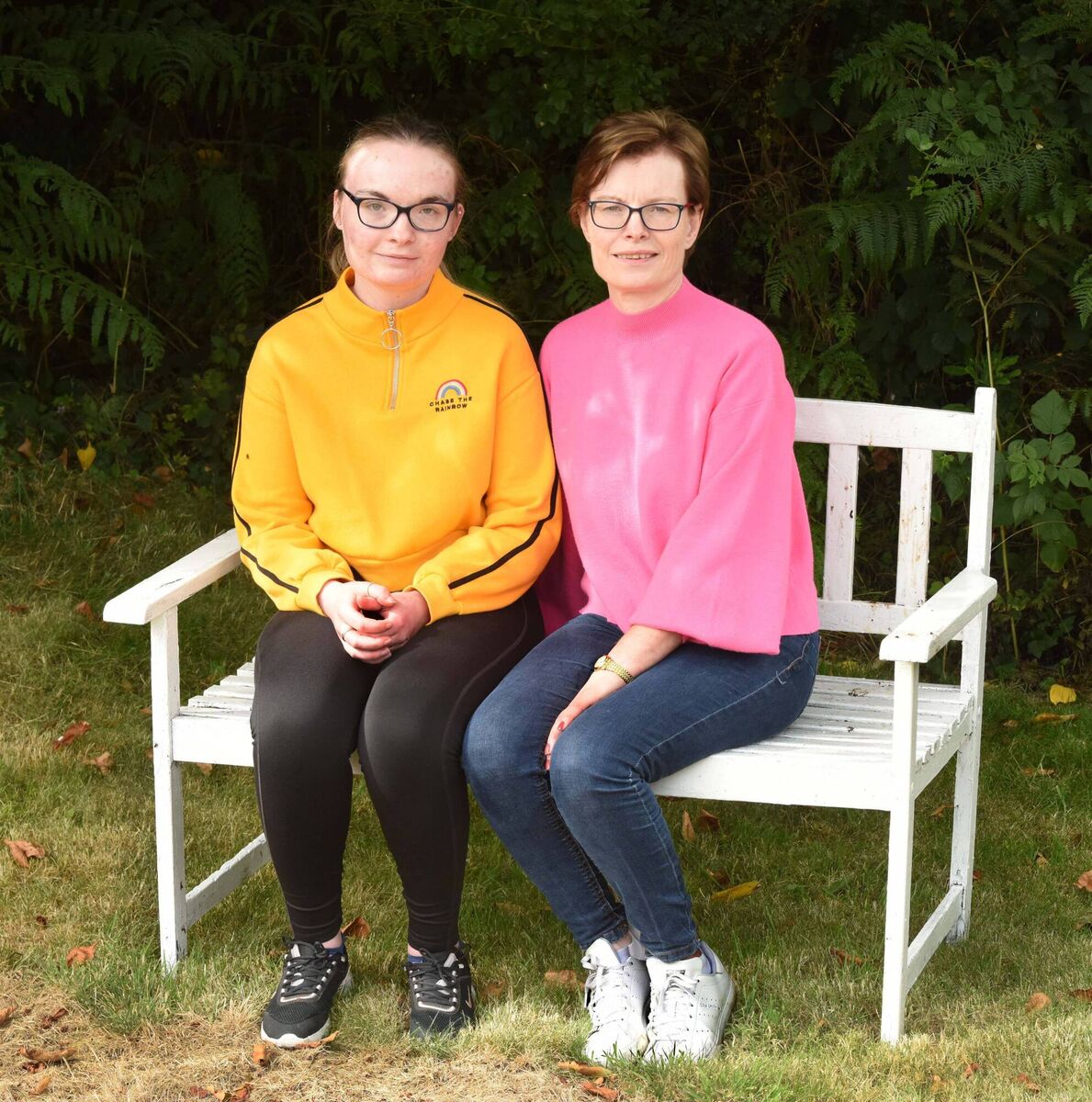Families want answers on epilepsy drug that can damage babies in the womb

Theresa Byrne and her daughter Ellie at their home in Wicklow. Ellie was diagnosed with fetal valproate syndrome following a lifetime of symptoms. Picture: Moya Nolan
Ellie Ginty, 21, will always remember the day she first heard the term 'fetal valproate syndrome', as she suddenly had an explanation for so many challenges in her young life.
“Honestly, I was saddened by it,” she said. “I didn’t understand how this could happen to me.”
Her family in Wicklow is one of an estimated 1,250 in Ireland living with serious harm which can be caused by a prescription epilepsy drug, Epilim, containing sodium valproate, when it is taken by pregnant women.
There is a 10% risk a baby in the womb exposed to this will have congenital malformations and a 30%-40% chance they will have neurodevelopmental disabilities.
On Tuesday, Ellie’s mother Theresa Byrne and advocates from the Organisation for Anticonvulsant Syndromes Ireland (OACS) and Epilepsy Ireland will meet Health Minister Stephen Donnelly to discuss an inquiry.
Although academic studies on these risks first emerged in the early 1980s, reports in Ireland and other countries continue to find that women are not warned.
OACS supports families with young children and is aware of at least one five-year-old who currently has the condition.
“This has robbed my children of a decent future," said Ms Byrne. “I planned my pregnancies, I wanted to do the right thing.”
Her son is also affected, to a lesser degree, and her voice breaks when she describes finally getting a formal diagnosis.
“I had to sit my children down and tell them,” she said. “Stephen Donnelly didn’t sit them down and tell them, a neurologist didn’t sit them down and tell them. It was their mother. The guilt I feel — I can’t change this.
She would like answers and action on promises to support families in practical ways.
“All we want to know as mothers is why were our children harmed,” she said. “It’s not about naming and shaming any one person, my children have the right to learn the truth. They are innocent in this.”
Plans for this inquiry into historical licencing and use of Epilim were announced in 2020, following a British report finding “systemic failings” across the NHS on this issue.
A Department of Health spokeswoman said that terms of reference have been drafted.
“The minister is keen to have the inquiry up and running as soon as possible,” she said.
OACS spokeswoman Karen Keely, whose children are also affected, said families want to know why this was allowed to continue for decades.
“We want an inquiry that will deliver the answers that families deserve, and indeed one which will act as a vehicle to ensure no other woman or family is affected in the same way in the future,” she said.
“Whether the Government is willing to deliver this type of inquiry remains to be seen, and we will closely reflect on what we are presented with at the meeting.”
Epilepsy Ireland chief executive Peter Murphy called for a stakeholder group, promised in 2020, to boost awareness.
“In 2022, the risk remains that a child could be born with valproate-related disabilities,” he said. "This is simply unacceptable."
A HSE programme should see regular discussions between women and healthcare providers on risks.
However, Mr Murphy pointed to two Royal College of Surgeons Ireland studies finding low awareness of this among health staff.
“Coupled with Epilepsy Ireland’s survey in 2020, which showed that a significant number of women on the drug were dangerously unaware of the potential impacts it could have, it is beyond belief that the State has not yet acted on this issue,” he said.
A spokeswoman for the Irish College of General Practitioners said it updated advice for GPs on management of epilepsy in practice in 2020.
GPs are told not to prescribe this for epilepsy or bipolar disorder in pregnant women. Women’s neurologists should complete a risk assessment annually.
A HSE spokeswoman said: “The HSE fully acknowledges the challenges faced by families affected by fetal valproate syndrome, and that despite a lot of development within the health system, some of their needs can’t be met within the current arrangements.”
Funding is available for additional hospital consultants to support families.

When Ellie Ginty talks about the impact Epilim can have on some babies in the womb, it is personal.
Her mother was taking this prescription drug while pregnant and not advised to stop, even though the first studies on serious risks for some babies were published during the early 1980s.
Now 21, Ellie was diagnosed with fetal valproate syndrome following a lifetime of symptoms including only starting to walk at two years and three months.
“Honestly, I was saddened by it,” she says. “I couldn’t understand how this could happen to me.”
She lists the ways her own body challenges her, starting with being slow to notice pain.
Among other accidents, she frequently burns herself in the shower and burnt her hand severely on an oven ring aged about eight.
“I froze when that happened, I didn’t know what was happening,” she says.
Living at home with her mother, Ellie attends National Learning Network Centre, run by Rehab in Bray, but what she really wants to do is apprentice as a tattooist.
A talented artist, her vibrant paintings line the walls of their home, but she says of trying to learn other skills: “It just doesn’t stick.”

Even brushing her teeth is difficult as she cannot maintain pressure on the brush.
“It’s my dyspraxia,” she explained, a neurological condition affecting, in her case, gross motor skills.
“I struggle with escalators, I freeze up and I need to have someone near me to guide me.”
Unable to learn to drive, she is dependant on public transport as a shuttle bus which took her to Newcourt School — where she took three Junior Certificate subjects — stopped when she reached 18.
“Transport is a major issue,” she said, adding of all the supports the State could arrange, this would make a huge difference.












